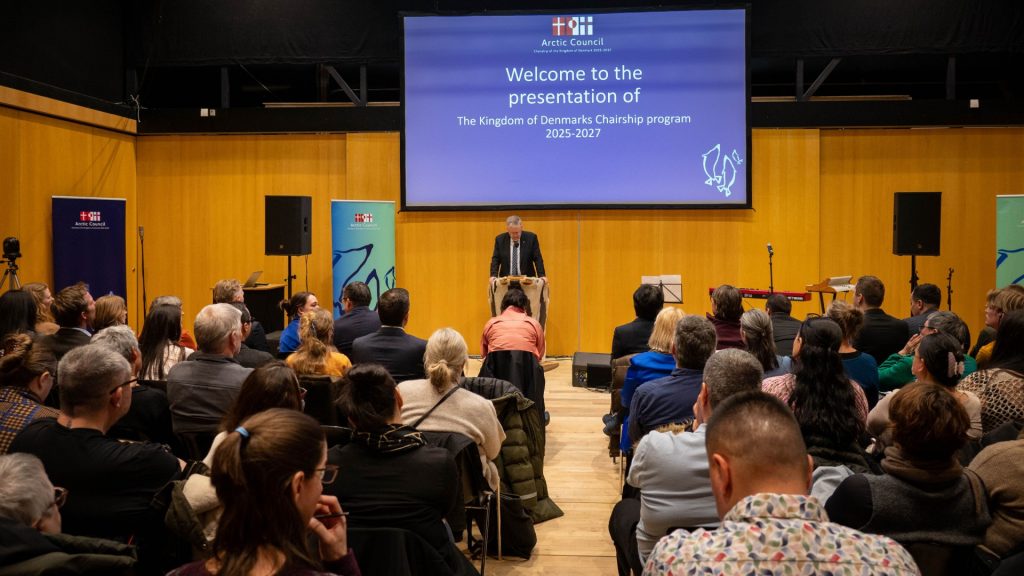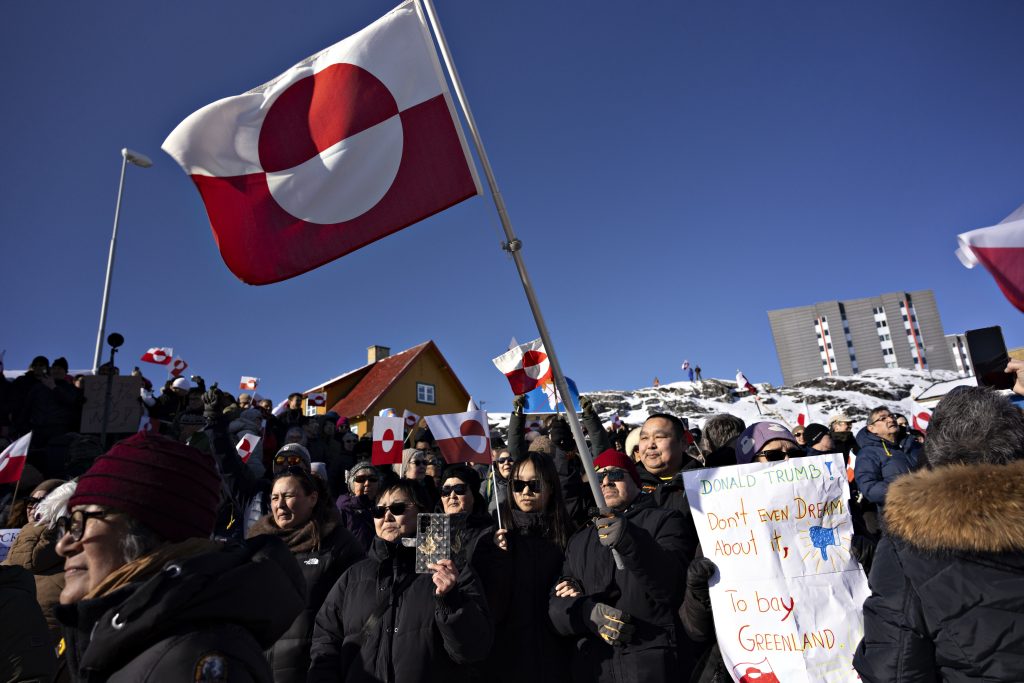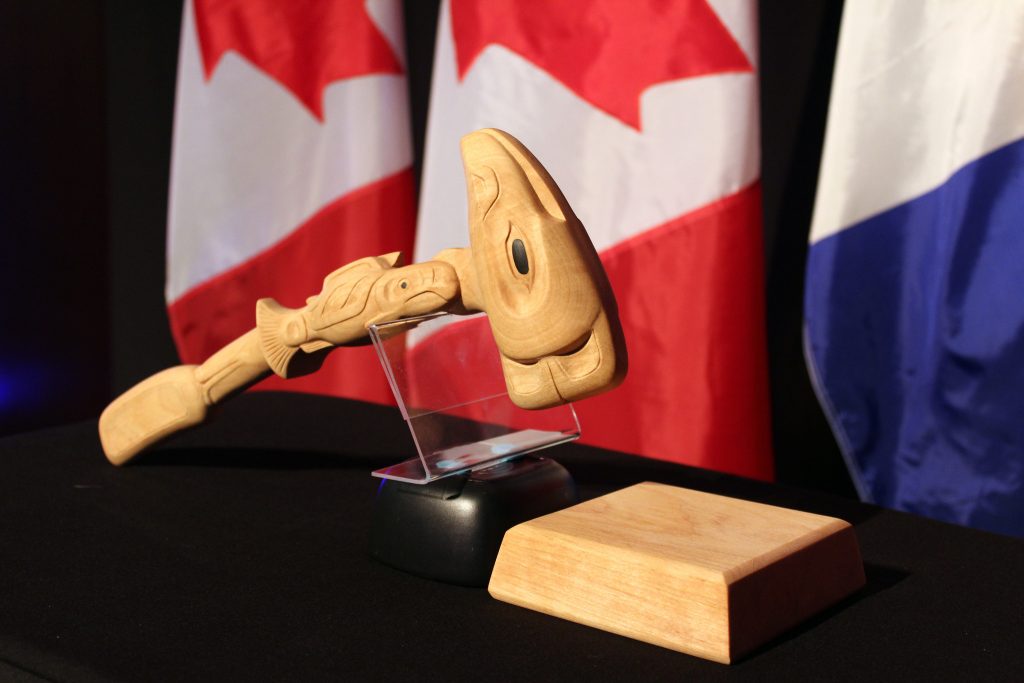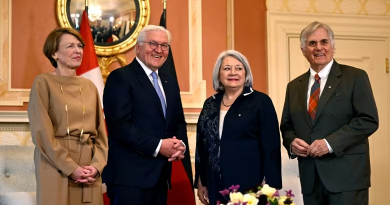Denmark sets Arctic Council leadership agenda amid intensifying global Greenland focus

As it prepares to assume the chairmanship of the Arctic Council in May, the Kingdom of Denmark outlined its key priorities on Friday, placing a strong emphasis on supporting Indigenous communities and making the Council’s work more accessible to the people and communities of the North.
” The Arctic Council must remain vibrant and dynamic so the Arctic can continue to be a region of stability and constructive cooperation,” Vivian Motzfeldt, Greenland’s Foreign Minister said in a streamed event from Nuuk.
“A key ambition will be to foster an inclusive chairmanship bringing the work of the Arctic Council closer to the people living in this region.”
Motzfeldt said the island holds a pivotal role in shaping the Kingdom’s chairmanship.
And with the endorsement of Denmark and the Faroe Islands, Kenneth Høegh, a longtime diplomat from southern Greenland, has been named Arctic ambassador, and will be the Senior Arctic Official during the Kingdom’s leadership of the forum.
- Indigenous Peoples & Communities: Boost Indigenous voices and knowledge in decision-making. Focus on health, mental health, youth involvement, and gender equality.
- Sustainable Development: Support growth that benefits Arctic communities. Focus on clean energy and Indigenous leadership.
- Oceans: Better monitoring and international cooperation.
- Climate Change: Effects on local communities.Reduce black carbon and methane emissions.
- Biodiversity: Protect Arctic wildlife and ecosystems, and addressing pollution and invasive species.
Høegh’s most recent posting has been as Head of the Greenland Representation in the US and Canada in Washington, D.C.
“For the first time, the Government of Greenland is appointing an Arctic ambassador to represent the Kingdom of Denmark,” Motzfeldt said, saying this would ensure Greenland would have strong voice both in the Arctic Council and on the international stage.
Høegh addressed the audience saying he was confident that Denmark, Greenland and the Faroe Islands would be able to make important contributions to Arctic sustainability efforts and northern cooperation.
“There are important tasks ahead of us, but I’m sure that when we work together within the Kingdom, we will achieve meaningful results for the Arctic,” Høegh said.
Challenged by rising geopolitical tensions
Although it wasn’t mentioned during the streamed event, the Kingdom of Denmark’s chairmanship comes at a time of heightened tensions between Washington, Nuuk, and Copenhagen, fueled by the Trump administration’s repeated rhetoric about over taking control of Greenland.
Both Nuuk and Copenhagen have been united in saying Greenlanders alone will decide their future.
It’s just the most recent tension within the forum which was rocked by the Russian invasion of Ukraine in 2022 and even led to pause and ongoing disruptions to the body’s work as the seven western Arctic nations cut ties and communication with Moscow.
Although the expert groups resumed work in 2024, the council’s cooperation remains limited.

One Arctic expert said Høegh’s appointment both sends a message and positions Greenland to strengthen its strategic position as it finds itself at the centre of global attention.
“Høegh has held arguably one of the two toughest jobs in international diplomacy over the past few months,” Dwayne Ryan Menezes, the founder and managing director of the Polar Research and Policy Initiative, said in emailed comment.
“He will be leaping out of the frying pan now into the wild open fire by taking on the second of the two toughest jobs in international diplomacy, which is overseeing the Arctic Council as Chair of the Senior Arctic Officials at a time when both the US and Russia are proving to be principal drivers of global instability, albeit for different reasons.”
Environment and sustainable development
The Arctic Council is an international forum for the eight Arctic nations and six Arctic Indigenous groups and focuses on emergency preparedness, environment and sustainable development in the North. Military and defence issues have been excluded from the forum since its founding.
The chairmanships rotate between the countries every two years.

Year formed: 1996
Arctic Council States: Canada, Denmark (Greenland), Finland, Iceland, Norway, Sweden, Russia, United States
Permanent Participants: Aleut International Association, Arctic Athabaskan Council, Gwich’in Council International, Inuit Circumpolar Council, Russian Association of Indigenous Peoples of the North, Saami Council
Current Chair: Norway (2023-2025)
Incoming Chair: Denmark (2025-2027)
Besides its focus on on Indigenous people and Arctic communities, the Kingdom of Denmark’s four other priorities include sustainable development and energy transition; oceans, climate change and biodiversity.
The Kingdom of Denmark will officially take over the Arctic Council chairmanship from Norway on May 12 in a private, virtual-only event.
Comments, tips or story ideas? Contact Eilís at eilis.quinn(at)cbc.ca
Related stories from around the North:
Canada: Arctic sovereignty, defence on the minds of many Yukon voters, CBC News
Finland: US, Norwegian forces in Lapland for rapid reinforcement exercise, The Independent Barents Observer
Greenland: Greenland’s new parliament convenes for first time amid Trump pressure, Thomson Reuters
Norway:Trump slaps tariffs on Arctic islands with almost no export, CBC News
Sweden: Swedish defence working on developing military drone force, Radio Sweden
United States: Greenland ‘Freedom City?’ Rich donors push Trump for a tech hub up north, Reuters



